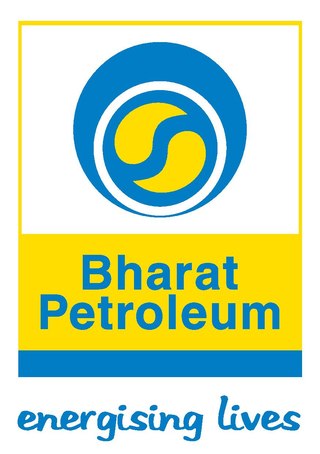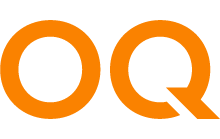Related Research Articles

Marathon Petroleum Corporation is an American petroleum refining, marketing, and transportation company headquartered in Findlay, Ohio. The company was a wholly owned subsidiary of Marathon Oil until a corporate spin-off in 2011.

China Petroleum and Chemical Corporation, or Sinopec, is a Chinese oil and gas enterprise based in Beijing. It is listed in Hong Kong and also trades in Shanghai.

MOL Plc., also known as MOL Group, is a Hungarian multinational oil and gas company headquartered in Budapest, Hungary. Members of MOL Group include among others the Croatian and Slovak formerly state-owned oil and gas companies, INA and Slovnaft. MOL is Hungary's most profitable enterprise, with net profits of $770 million in 2019. The company is also the third most valuable company in Central and Eastern Europe and placed 402 on the Fortune Global 500 list of the world's largest companies in 2013.
The United Kingdom petroleum pipeline network is principally made up of three pipelines systems: the former Government Pipeline and Storage System (GPSS) now the Exolum Pipeline System; the Esso pipelines, and the United Kingdom Oil Pipelines (UKOP) and associated pipelines. There are also several other lines including the Fina line built around 1990 that runs from North Lincolnshire to the Buncefield oil depot near Hemel Hempstead.

Stanlow Refinery is an oil refinery owned by Essar Energy in Ellesmere Port, North West England. Until 2011, it was owned by Shell UK. The refinery is situated on the south bank of the Manchester Ship Canal, which is used to transport seaborne oil for refining and chemicals for Essar.
The Vadinar refinery is an oil refinery at Vadinar, Gujarat, India. It is owned and operated by Nayara Energy Limited, in which Rosneft owns a 49.13% stake. The refinery is India's second largest single-location refinery, with an annual capacity of 20 million tonnes and a complexity of 11.8, which also makes it among the world's most complex refineries.

Bharat Petroleum Corporation Limited (BPCL) is an Indian public sector undertaking (PSU) under the ownership of the Ministry of Petroleum and Natural Gas, Government of India. It operates three refineries in Bina, Kochi and Mumbai. BPCL is India's second-largest government-owned downstream oil producer, whose operations are overseen by the Ministry of Petroleum and Natural Gas. BPCL was ranked 309th on the Fortune list of the world's biggest PSUs in 2020, and 1052nd on Forbes's "Global 2000" list in 2023.
Türkiye Petrol Rafinerileri A.Ş. is a company in Turkey, operating four refineries with a total capacity to handle an annual 30 mn tons of crude.
Vitol is a Swiss-based Dutch multinational energy and commodity trading company that was founded in Rotterdam in 1966 by Henk Viëtor and Jacques Detiger. Though trading, logistics and distribution are at the core of its business, these are notably complemented by refining, shipping, terminals, exploration and production, power generation, and retail businesses. Vitol has over 40 offices worldwide, with its largest operations in Geneva, Houston, London, and Singapore.

BP p.l.c. is a British multinational oil and gas company headquartered in London, England. It is one of the oil and gas "supermajors" and one of the world's largest companies measured by revenues and profits. It is a vertically integrated company operating in all areas of the oil and gas industry, including exploration and extraction, refining, distribution and marketing, power generation, and trading.
Kenya Pipeline Company (KPC) is a state corporation that has the responsibility of transporting, storing and delivering petroleum products to the consumers of Kenya by its pipeline system and oil depot network.

Essar Energy plc is Mauritius-based Indian energy company with assets in the power and oil and gas businesses. Headquartered in Port Louis, Mauritius and subsidiary of Essar Group, the firm has interests in both the power generation and petroleum industries. In May 2014 the company was acquired by its majority shareholder, Essar Global Fund Limited.

OQ, formerly known as Oman Oil Company, is an energy investment company headquartered in Muscat, Oman. It is a wholly owned subsidiary of the Government of Oman through the Oman Investment Authority.

Ceylon Petroleum Corporation, commonly known as CEYPETCO (CPC), is a Sri Lankan oil and gas company. Established in 1962 and wholly owned by the Government of Sri Lanka, it is the largest oil company in Sri Lanka. It was formed in 1961 by nationalisation and expropriation of all private oil companies in Sri Lanka at the time of its formation. It is under the ownership of Ministry of Petroleum Resources Development headquartered in Colombo. It is the largest government owned company in the country, with an operational profit of Rs. 33.9 billion for the financial year 2020.

This article describes energy and electricity production, consumption, import and export in Kenya. Kenya's current effective installed electricity capacity is 2,651 megawatts (MW), with peak demand of 1,912 MW, as of November 2019. At that time, demand was rising at a calculated rate of 3.6 percent annually, given that peak demand was 1,770 MW, at the beginning of 2018. Electricity supply is mostly generated by renewable sources with the majority coming from geothermal power and hydroelectricity.
Despite its high potential for wind energy generation, wind power in Kenya currently contributes only about 16 percent of the country's total electrical power. However, its share in energy production is increasing. Kenya Vision 2030 aims to generate 2,036 MW of wind power by 2030. To accomplish this goal, Kenya is developing numerous wind power generation centers and continues to rely on the nation's three major wind farms: the Lake Turkana Wind Power Station, the Kipeto Wind Power Station, and the Ngong Hills Wind Farm. While these wind power stations are beneficial to help offset fossil fuel usage and increase overall energy supply reliability in Kenya, project developments have also negatively impacted some indigenous communities and the parts of the environment surrounding the wind farms.
The Uganda National Oil Company (UNOC), also known as the National Oil Company of Uganda, is a limited liability petroleum company in Uganda owned by the Ugandan government. The 2013 Petroleum Act of Uganda provides for the establishment of the national oil company. UNOC's board of directors was inaugurated on 23 October 2015 by the president of Uganda.

Indian Oil Corporation Limited, trading as IndianOil, is an Indian multinational oil and gas company under the ownership of the Ministry of Petroleum and Natural Gas, Government of India. Registered in Mumbai but headquartered in New Delhi, it is a public sector undertaking whose operations are overseen by the Ministry of Petroleum and Natural Gas. Indian Oil is ranked 94th on the Fortune Global 500 list of the world's biggest corporations as of 2022. It is the largest government owned oil producer in the country both in terms of capacity and revenue. It has consolidated refining capacity of 80.55MMTPA which it intends to increase to 107MMTPA by 2024-25. As of 31 March 2021, Indian Oil's employee strength is 31,648, out of which 17,762 are executives and 13,876 non-executives, while 2,776 are women, comprising 8.77% of the total workforce. As On 31.3.2024 IOC Employed 30,321 Employees. Out Of Which Executives Account 18,570 & Non Executives Account 11,751.
The petroleum industry in India dates back to 1889 when the first oil deposits in the country were discovered near the town of Digboi in the state of Assam. The natural gas industry in India began in the 1960s with the discovery of gas fields in Assam and Maharashtra. As on 31 March 2018, India had estimated crude oil reserves of 594.49 million metric tonnes (Mt) and natural gas reserves of 1339.57 billion cubic metres of natural gas (BCM).
References
- ↑ "KPRL crude sold for Sh1.25bn". Citizentv.co.ke. Retrieved 2018-12-09.
- ↑ "Turkana oil drives jobseekers to Mombasa refinery". Daily Nation. Retrieved 2018-12-09.
- 1 2 Prasad, Rachita (2016-06-24). "Essar Energy exits Kenya Petroleum by selling stake to Kenyan government". The Economic Times. Retrieved 2020-04-06.
- ↑ Kamau, Macharia. "Refinery prepares to receive early oil". The Standard. Retrieved 2018-12-09.
- ↑ "Essar now wants to sell its 50pc refinery stake to State". Daily Nation. Retrieved 2018-12-09.
- ↑ "Kenya Petroleum Refineries Limited – Energising Our Nation" . Retrieved 2020-04-06.
- ↑ "Who We Are – Kenya Petroleum Refineries Limited" . Retrieved 2020-04-06.
- ↑ "Our Operations – Kenya Petroleum Refineries Limited" . Retrieved 2020-04-06.